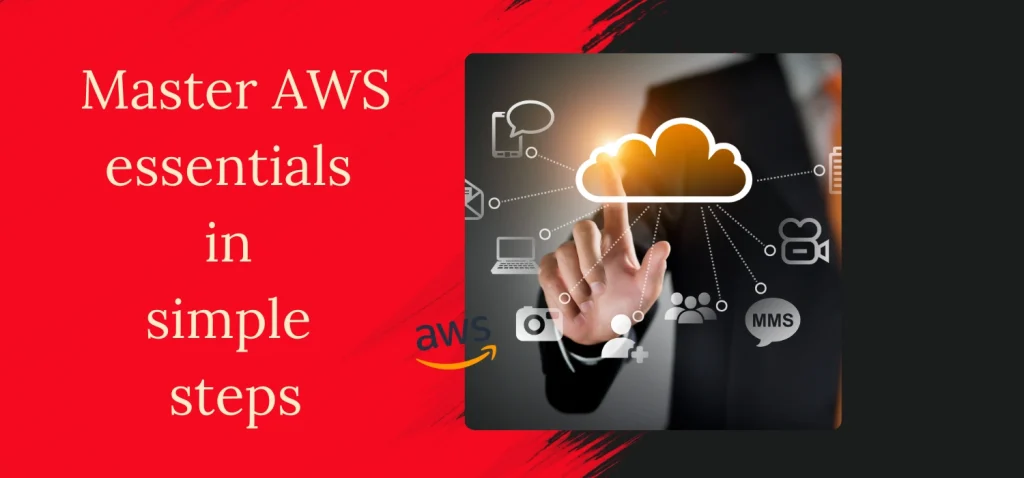
Cloud computing is the latest version of modern computing, which allows you to access your documents and use computing power from anywhere in the world, as long as you have internet access.
In general terms, cloud computing is a resource managed by one location and accessed from various locations globally using the internet. In simple terms, cloud computing is similar to how an electricity company provides electricity to everyone, and you get charged based on the units used. The same model applies to cloud computing, where resources are stored at one or more locations and fully managed by the company, allowing public access from anywhere with an internet connection.
We all use cloud computing in some format, like when you use any email services such as Gmail, Yahoo, Hotmail, or Zoho. These are hosted email platforms with servers everywhere and CDN (Content Delivery Network) capabilities, allowing you to use their free or paid services on the go, from any device, any place with an internet connection.
Types of Cloud Computing Services: Public, Private, and Hybrid
Cloud services come in different forms:
- Public Cloud: A widely used model by industries to host their applications, servers, and general computing tasks. Many businesses rely on cloud hosting services such as Amazon AWS, Microsoft Azure, and Google Cloud for scalable solutions.
- Private Cloud: Dedicated environments are used by large corporations or government organizations where data security is paramount.
- Hybrid Cloud: A mix of public and private clouds, providing businesses with the flexibility to manage part of their data securely in a private cloud while taking advantage of the scalability of public clouds.
How Cloud Computing Benefits Your Everyday Life?

In daily life, most people are using cloud-based productivity tools. For example, instead of using a computer-based program like Microsoft Word, you can use Google Docs (a cloud-based app) to write and edit documents from anywhere. Your files are stored on Google’s cloud platform, which means they can be accessed from any device, anywhere.
With cloud storage options, such as Google Drive, your documents are safely stored online. Whether you want to back them up or share them, you can do so easily, eliminating the need for emailing multiple copies or managing files locally.
The Pros and Cons of Cloud Computing
Cloud computing offers several benefits:
- Access from any device: Whether you’re using a laptop, tablet, or smartphone, you can access files stored in the cloud with any browser.
- Collaboration and flexibility: It simplifies working with colleagues or clients from various locations in real-time.
- Reduced upfront hardware costs: No need to buy expensive equipment.
- Automatic software updates and maintenance: Many SaaS platforms handle maintenance, so you don’t need to worry about it.
- Backup and recovery: Cloud data backup ensures your important files are safe, even in case of hardware failure.
However, there are some disadvantages like security concerns and reliance on internet access, which may cause downtime.
How Cloud Computing Works for Your Business?
For businesses, cloud computing enables efficient management of CRM and ERP cloud solutions, with popular services like Zoho CRM and Salesforce providing tools for customer management and operational efficiency. With cloud email hosting services such as Google Workspace or Office 365, businesses can manage email communications seamlessly.
Cloud computing also allows businesses to implement cloud-based CRM and ERP solutions for better integration and automation across all processes. These solutions can be customized to meet specific business needs, helping teams stay organized and collaborate efficiently.
Choosing the Best Cloud Computing Service Providers
There are three main types of cloud services available:
- IaaS (Infrastructure as a Service): This provides virtual machines and resources like cloud hosting services, ensuring that infrastructure management is handled by a third-party provider like Amazon EC2 or Google Cloud.
- PaaS (Platform as a Service): Offering a platform that serves computing power and related resources, platforms like Heroku and AWS Elastic Beanstalk enable businesses to build and deploy applications easily.
- SaaS (Software as a Service): A widely popular model, SaaS platforms like Google Workspace, Salesforce, and Zoho CRM provide on-demand software solutions, freeing businesses from the hassle of installation, updates, and maintenance.
Why Cloud Hosting is Important for Websites
Cloud hosting is very helpful for websites. It makes websites work better and faster. Here are some reasons why cloud hosting is important:
1] Flexibility
Cloud hosting lets websites change how much power they use based on how many people are visiting the site. This helps the website run well all the time, even when lots of people visit at once.
2] Reliable
Cloud hosting uses many servers in different places. This means that if one server stops working, the website will still be online. This keeps the website up and running without problems.
3] Faster Speed
Cloud hosting uses something called a content distribution network (CDN). This spreads website information across many servers around the world. This makes the website load faster for people, no matter where they are.
4] Customization
Cloud hosting allows website owners to change things like CPU, RAM, and storage space based on what they need. This makes the website work well no matter how many people are visiting.
5] Cost Savings
With cloud hosting, website owners only pay for what they use. This saves money because they don’t need to buy expensive equipment.
6] Advanced Security
Cloud hosting has strong security to protect websites from cyber-attacks. It uses things like firewalls and DDoS protection to keep the website safe.
7] Automatic Backups
Cloud hosting can automatically save copies of your website. This means that if something goes wrong, you can easily restore your website.
| Benefit | Description |
| Flexibility | Adjust resources based on traffic needs |
| Reliability | Uses multiple servers to reduce downtime |
| Increased Speed | Uses CDNs to deliver content quickly |
| Customization | Allows changing CPU, RAM, and storage as needed |
| Cost Savings | Pay for what you use, no need for expensive hardware |
| Advanced Security | Protects against cyber threats with firewalls and DDoS protection |
| Automatic Backups | Automatically saves copies of your website |
How to pick the right cloud service provider for your demands?

Choosing the right cloud service provider is important. Here are some things to think about:
1] Reliability
Make sure the provider has a good record of uptime. You want your website to be available as much as possible.
2] Performance
Pick a provider that offers resources you can scale up or down. This means your website will work well no matter how many people visit.
3] Security
Choose a provider that follows strong security practices. This keeps your website and data safe.
4] Cost
Look at the provider’s pricing. Make sure there are no hidden fees and that the pricing fits your budget.
5] Support
Pick a provider that offers good customer support. This is important if you have problems or questions.
6] Integration
Make sure the provider’s services work well with your existing systems. This makes things run smoothly.
7] Data Management
Check if the provider offers good data management and backup options. This protects your data.
8] Global Presence
If your website serves people all over the world, choose a provider with data centers in many locations. This helps your website load quickly everywhere.
9] Service Level Agreements (SLAs)
Look at the provider’s SLAs. These are promises about how well their service will work. Make sure they fit your needs.
10] Reviews
Read reviews from other customers. This can help you learn about the provider’s reliability and support.
Cloud Computing Trends 2024
Technology keeps changing. Here are some new trends in cloud computing:
1] Edge Computing
Edge computing processes data close to where it’s created. This makes things like IoT devices work faster and better.
2] Serverless Computing
Serverless computing lets developers focus on writing code without worrying about servers. This makes things more efficient.
3] Multi-Cloud and Hybrid Cloud
Businesses are using more than one cloud provider. This gives them flexibility and makes their systems stronger.
4] AI and Machine Learning
Cloud providers are adding AI and machine learning tools. This helps businesses make better decisions and automate tasks.
5] Containerization
Technologies like Docker and Kubernetes help deploy and manage applications in the cloud. This makes things more efficient.
6] Zero Trust Security
Zero Trust Security means always verifying access, even from inside your network. This helps protect against cyber-attacks.
7] Edge AI and IoT
Combining edge computing and AI makes IoT devices smarter. This helps them process data in real-time.
8] Quantum Computing
Quantum computing is still new but has a lot of potential. Cloud providers are exploring ways to use it to solve complex problems.
9] Green Cloud Computing
More focus is being put on making cloud computing environmentally friendly. This means using energy-efficient infrastructure and renewable energy.
10] Data Privacy and Compliance
New data privacy laws mean cloud providers need to follow strict rules. This helps protect your data.
Getting Started with Cloud Computing
To start using cloud computing, you need a simple internet connection and a browser. Most cloud computing solutions in Perth or Australian cloud technology companies provide easy-to-integrate solutions. Whether it’s using cloud hosting or implementing cloud email services, you can quickly scale your business with minimal effort.
Aarchi Infotech Solutions(AIS) provides world-class cloud solutions for businesses globally, including:
- Cloud Hosting with Amazon AWS, Microsoft Azure, Digital Ocean, and others.
- Cloud Emails through Google Workspace or Office 365 for streamlined communication.
- Cloud-based CRM/ERP Software for seamless customer and enterprise resource management.
- Cloud Backup Services to ensure your business data is always secure.
Looking for affordable cloud computing plans? Reach out to us today, and we’ll help you get started with the best SaaS platforms for small businesses or cloud storage providers tailored to your needs. Need more info? Contact us to learn about our cloud data centers and get a quote for cloud computing services in Australia!



